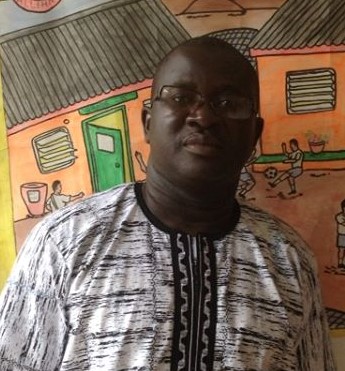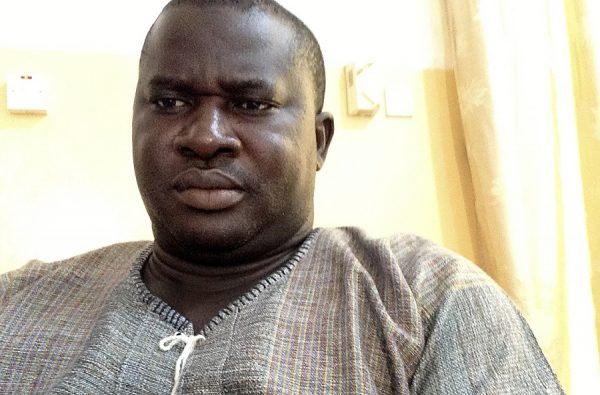
(JollofNews) – The other day my friend Madi Jobarteh requested the President to embark on a system-wide change through a system-wide approach, if the factors that precipitated our revolution and which birthed New Gambia are not to repeat themselves; if the revolution is not going to be just a “change of government”.
Since system change is also about people, as part of the system and its drivers, serious focus must be put on it. It will require investment in the human capital. New Gambia will require new ways of working and of doing things; new attitudes and new mindset. A new orientation of the requirements of New Gambia, accompanied by a paradigm shift in attitude, must be instilled in all. For the new system to work effectively, those in the higher echelons must sincerely believe in the vision, new values and aspirations of New Gambia. Without their buy-in into these, expect a sabotage. Their place is not the Government. Advising leaders, Joe Jaworski stated:
“If you want a creative explosion to take place, if you want the kind of performance that leads to truly exceptional results, you have to be willing to embark on a journey that leads to an alignment between an individual’s personal values and aspirations and the organisation’s values and aspirations”
The personal values of the employees must synchronise or align with the values of New Gambia. There must be an insistence that every head of department be the “lengthened shadow” of New Gambia.
Madi highlighted all the parts of the System which ought to be affected by the change- all the parts must be affected otherwise the rusted, untouched parts will eventually grind the System to a halt. Of the parts of the System which must also be emphasised are COORDINATION, COMMUNICATION/INFORMATION , PARTICIPATION and DATA.
An effective coordination mechanism, ensuring the parts work in unison and towards the common agenda of the Government, is paramount. Each Government Ministry must be tasked to have its own planning and coordination unit which is supported by a Planning and Coordination Ministry or bureau. These bodies and the Body will have to ensure the national coordination of our agenda through an integrated approach.
Communication facilitates good working relationship between and amongst the parts. Without it, regular and systematic, relationship may die. Each part may try to work in its silo and would not appreciate how its functions affect and are inextricably linked to the other parts. The Immigration Department must see how its work is connected to that of Ministry of Forestry; the Ministry of Health must see the connection between its work and that of National Roads Authority for instance. We do not communicate too often; each is protective of its turf and we only “invite” each other to our workshops. The point of harmony and integration in our works, and how our joint actions can contribute to achieving the common agenda are lost in our compartmentalized approach. It is a turf war everywhere; a rat race.
Systems do not work effectively without data. Investment in this area is key. Programming is affected without reliable, up-to-date data. For instance apart from the UNICEF MICS and GBoS DHS, produced every five years, we do not have comprehensive data on children or child protection in The Gambia. Some of the data available are qualitative. The Government must insist on the utilisation of the evidence from these studies or the recommendations. It is our attitude that once a research or study is validated we seldom remember it. The findings add no real value to our work in the field or our practices in the office.
In this System also belongs Civil Society, academia and the private sector. There must be an insistence that the programs and actions of these entities are in line with the development agenda of the State and contribute towards the efforts of an identified part of the System. These entities are not supposed to be competitors to the State. On the other hand, the Government must create the legal and policy environment for these entities to grow and contribute. On the part of the private sector, the Government must insist on a better Corporate Social Responsibility, true to form and idea.
As the President launches the Think Tank today, we hope the processes of doing the blueprint will be participatory, inclusive, consultative and broad based. We hope it will carry the voices of the poor, the vulnerable and the marginalised, those who are often on the menu. Development is about the people. Development is freedom.
I pledge my form allegiance to The Gambia













Soundly reasoned and intuitive..
Absolutely true. Without a system change, accompanied by change in attitudes, the “new” Gambia will be new, but for only a handful.
Njundu, you and the likes of Madi Jobarteh,Yero Jallow,Demba Ali Jawo,Sering Falu Njie to name a few are known for your genuine and frank approaches towards National issues. Please keep on writing to show Gambians that today is different from yesterday, where we live in a modern world of a globalized technology accessing swift and instant transmission of information for transparency. Always keep alerted to all shortcomings of The New Gambia and give your advises appropriately and on time.Thank you very much,Bravo; and keep it up.
An excellent addendum to Madi Jobarteh’s timely insight and Njundu’s. Like they say, “you can take a Horse to the Stream but you can’t force it to Drink”. The Gambians must demand for these Transformative And Systematic Changes and the Government Needs to Respond in a Measured and Equally Caculated Manner that would engender Participatory and Accountable Democracy. Democracy is Not Sloganeering. Not at all. It is Real and Tangible Benefits, for example, a Living wage, a Nuturing and Sustainable Environment of Education, Health, Peace and Security, Shared with and Enjoyed Among a Broad Based Citizenry and Others Alike.
Mr. Drammen,
The state of what we call capital city is shabby and embarrassing. You put your head down anytime you take a visitor around Banjul. It’s an indication of corruption, careless and laziness of the Gambia’s government and a complacent citizenry. How can a peoples heads be dipped in unrelated issues so far from development…
Yeah, I love Banjul, it’s gutters, I love its stench and mosquitoes. I am sure I sound patriotic now. Isn’t it?
This comment above was mistakenly posted under this article. It is meant for Mr. Drammeh’s article; Gambia’s Capital Doesn’t Need Just a Face-lift But a Serious Upgrade.
…..Deserves not a face-lift but ………